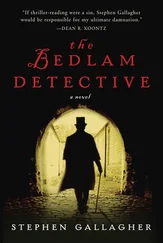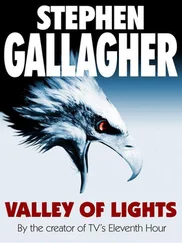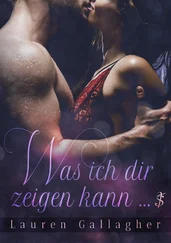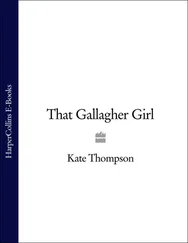“Got any good stories, sir?” Hog asked.
“Hmm.” I stroked my bare chin and considered. The frat boy in me wanted to participate. But the officer in me demanded I tread carefully. “Didn’t party much in high school,” I said. “But in college, I went to class in a SpongeBob bathrobe for a semester.”
I patted my slung rifle for effect. The soldiers laughed. The younger guys liked hearing stories about college. It gave them something to look forward to after this, even the ones who knew they would never use their GI Bill funds.
The soldiers started talking about the platoon roast slated for that evening, before our night patrol — a rare scheduling blip, with no one on guard duty or out of the wire. One of the cooks had traded with a local storekeeper for a goat. I reminded them that I’d been invited, so any General Order No. 1 violations would have to be furtive. I laughed to let them know they could, too.
The sound of a car motor droned through the still, coming closer and echoing off the blast walls. My chest seized up, and my muscles went taut. I wasn’t the only one: like figures in a diorama, we took our places, poised and alert.
We were what we pretended to be.
As the ranking enlisted man, Dominguez took the lead, walking through a maze of razor wire set across the dirt to impede car bombs. Hog followed, moving with more self-consciousness but less care. Alphabet rotated his turret from side to side, like a swivel, to remind the approaching car he was up there and so was the machine gun. I assumed my place behind the last strand of wire, shoulders cocked, back straight, head rigid, visualizing how the imperial officers of the past had stood when they bought peace for their country in strange lands far from home.
The car pulled up to the checkpoint, its driver idling the engine. Dominguez instructed both the driver and the passenger to get out. It was a blue sedan, similar in make to the one shot up by first platoon. The Iraqi brothers stood to the side, where Hog patted them down and then searched in and under the car. After the driver opened the trunk, Dominguez shouted a strident “All clear!” The soldiers and Iraqis began walking around the wire strands, and I went to the back of the Humvee for a black canvas backpack filled with stacks of hundred-dollar American bills, twenty-five hundred in total.
We called it condolence funds. They called it fasil . Blood money seemed most apt, though Captain Vrettos had freaked when I’d called it that the previous night. “That’s cynical,” he’d said. “We can’t afford to be cynical right now.” I’d wanted to argue that the army’s distortion of language was far more cynical—“military-age male,” for example, militarized any Iraqi with a penis between the ages twelve and sixty, whether a harmless shepherd or a zombie Zarqawi — but one look at the commander had suggested he wasn’t interested in philosophical debate. For such a slender man, he could be quite intimidating; there was something feral about his unkempt hair and ever-thinning eyebrows. So I’d just said “Yes, sir” and left it alone.
We converged in front of the Humvee. I’d expected the brothers to arrive in traditional man-dresses because of the funeral, but both wore the uniform of the urban young man on the prowl: tight dress shirts open at the collar, pressed slacks, narrow pointed leather shoes that shined like sunspots. Both wore long, tidy mustaches and smelled of ginger; the one I presumed to be older had rolled up his sleeves to display a heavy gold watch, while the younger one kept thumbing prayer beads in the palm of his hand.
“Salaam Aleichem,” I said, raising my right hand to my heart and cupping it.
The older Iraqi stared at me with hard, angry eyes, two black stones rolling across a flat berm of a face. Snoop chewed his lip while Dominguez waved the soldiers back to their positions at the gate. I looked past the brothers and up at the sun and reminded myself that I was the one with the gun.
It was the younger Iraqi who ended the standoff. “Salaam,” he said, curtly.
I turned to him and spoke. “Snoop, tell these guys the money is all here. They can count it out on the hood of the Humvee. One will need to sign a contract stating receipt.” Snoop nodded and started translating before I interrupted him. “They can’t keep the backpack. Battalion needs it.”
Snoop nodded again, pursing his lips and tapping his foot in the manner of a professional athlete feigning deference to a referee. I waited out their conversation, watching a large roach the color of sand shimmy across the ground. Then I remembered that Iraq didn’t have roaches, and even if it did, they didn’t have two claws and a raised trident for a tail. I took a step back while Snoop tried to smash the scorpion with his boot. It escaped under the tire of the Humvee.
“Fuck,” Snoop said. “A shaytan .”
I shivered in the heat. Getting blown into gut soup by a roadside bomb? I’d reconciled myself to that possibility. An unseen sniper’s bullet eating my little eternity like a goat eats a can? I’d never know the difference. But the chance of a silent assassin in hard-shelled bug form lying in wait under my pillow or in one of my boots had proven a recurring panic. The things didn’t even bleed. I looked back up at the Iraqis. The older brother was glowering, all flat-topped aggression, while the younger brother fiddled with a dead tooth in his mouth, eyes still hunting for the scorpion. Then the older one grabbed the contract from Snoop and signed it on his brother’s back. While he did this, I noticed his signing hand had the pinky nail grown out. It gleamed in the light. He shoved the sheet of paper at me and barked at Snoop.
“He say… well, I not tell you. But their cousin was no ali baba, he say. He worked the date groves by the canal.”
“And the part you didn’t translate?”
Snoop sighed. “ ‘To the eyes of Hell.’ An Iraqi slur.”
I nodded and stuck my hands in my pockets. My feet ached. So did my right collarbone, that old bane of a wound. An exoskeleton of sweat had formed under my body armor and uniform. No amount of water would end the drought in my throat. My men had already been out here for too many hours and wouldn’t be relieved until this was over. In theory, I wanted to empathize with these men who’d lost a loved one to an ignorant, violent occupation they called the Collapse. In theory, I found the exchange of blood money by any name, in any culture, to be abhorrent. In theory, my memories of their dead cousin’s sundered intestines and his wailing mother meant something more than just still-shot photographs soaked in gore. In theory, in an air-conditioned classroom I’d once sat in with great clarity and wrath, I would grasp and grapple for a solution that bridged this vast divide, because it was the right thing to do, because right things to do were worth grasping and grappling for, and not just in air-conditioned classrooms.
In practice, though, things were different. They just were.
“Insha’Allah,” I said, back straight, shoulders cocked. I folded up the contract and stuck it into a cargo pocket. Then I walked to the outpost, leaving any regrets at the gate, discarded waste for strangers to take away in the dead of night.
At the entrance, I cleared my rifle and stuck my muzzle into the tin barrel, jerking the trigger with a quick squeeze. Click. No negligent discharge for me. The heat stayed at the door, a loyal ghoul that would await my return.
The foyer was cool and bracing. The air was tinted orange and filled with dust — no door could keep out the desert sand. Trudging up the stairs to the living quarters, I looked up at the fresco covering the wall. I blew a kiss at the Mother Hajj and told Pedo bin Laden to leave the children alone. Both stared back, unsmiling.
Читать дальше




![Ally Carter - [Gallagher Girls 02 ] - Cross My Heart & Hope To Spy](/books/262178/ally-carter-gallagher-girls-02-thumb.webp)
![Ally Carter - [Gallagher Girls 01] I'd Tell You I Love You But Then I'd Have to Kill You](/books/262179/ally-carter-gallagher-girls-01-i-d-tell-you-i-lo-thumb.webp)






